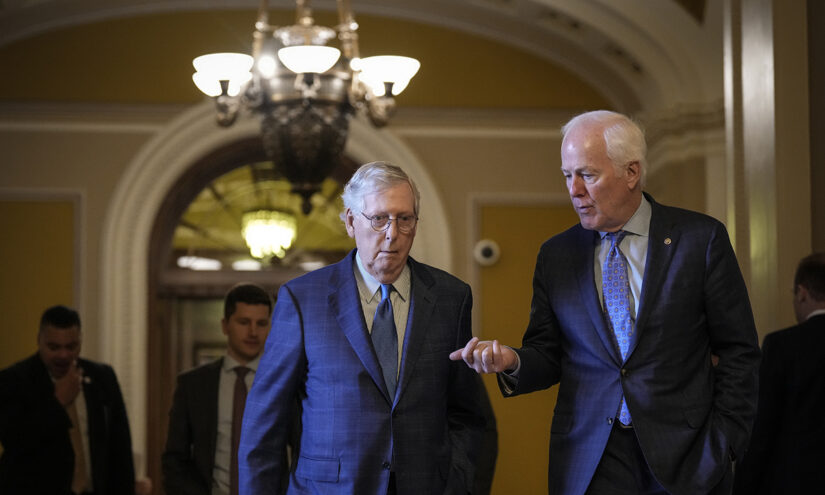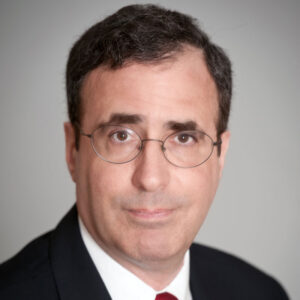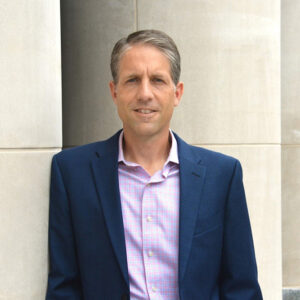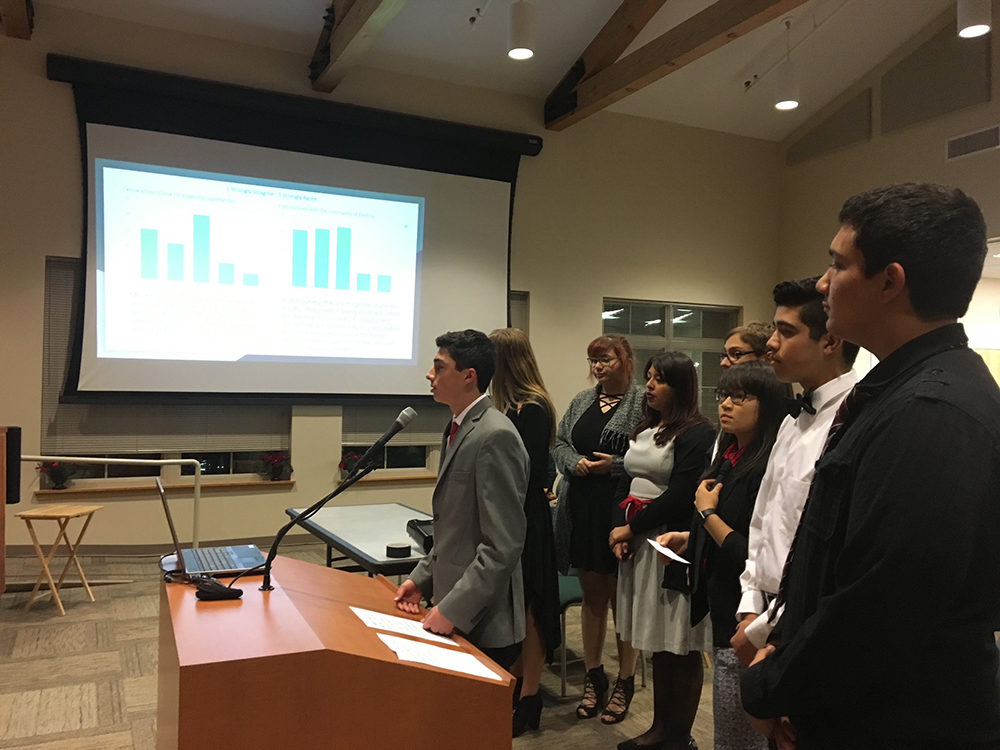The Conservative Scholar Who Convinced GOP Lawmakers Civics Conceals CRT
The most influential commentator you’ve never heard of, Stanley Kurtz launched a crusade against “woke civics” that’s shaped GOP bills across the U.S.
When U.S. Senators Chris Coons, a Delaware Democrat, and John Cornyn, a Texas Republican, introduced a bill in June 2022 to expand grants for civics education, most observers saw it as something of an olive branch. Colleagues on both sides of the aisle immediately announced their support for the proposal, a near-miracle in an age of withering bipartisanship.
But despite initial momentum, three now-familiar letters stopped the bill in its tracks: C-R-T.
A mostly unknown conservative scholar writing in the National Review that month claimed the bill would “allow the Biden administration to push Critical Race Theory (CRT) on every public school in the country,” calling the Republican co-sponsors “naive” victims of a hidden leftist agenda. Critical race theory, which posits that racism permeates American institutions, has become right-wing shorthand for any classroom discussion of race.
Cornyn, who proposed the legislation and is the former GOP majority whip, dismissed the allegations, writing on Twitter that “the false, hysterical claims are untrue and worthy of a Russian active measures campaign, not a serious discussion of our bill.”
But truthful or not, the criticisms spread like wildfire. The National Review op-ed racked up thousands of interactions on social media and, within 24 hours, 1776 Action and America First Policy Institute, groups that support what’s known as “patriotic education,” had published dire reports pulling directly from the article.
Then, just days later, Florida Gov. Ron DeSantis mimicked the message, stating in a press release the $1 billion federal civics bill would “award grants to indoctrinate students with ideologies like Critical Race Theory.”
Soon after, far-right Breitbart News ran an article whose headline pulled word-for-word from the National Review editorial and targeted Cornyn as the bill’s key backer. High-profile commentators took to social media urging their followers to call their lawmakers opposing what they described as “Trojan horse garbage” sponsored by RINOs, or Republicans In Name Only.
The senators’ “Civics Secures Democracy Act” went no further.
How did this firestorm start and who wrote the op-ed that lit the match?
The story begins years prior and revolves around Stanley Kurtz, a little-noticed power player shaping the right’s recent offensives in the education culture wars.

An enemy of ‘action civics’
Though his writings are regularly shared by GOP heavy hitters including Fox News analysts, groups like Parents Defending Education and sitting U.S. senators, Kurtz has flown mostly under the radar.
“Nobody’s talking about his role at all,” said Jeremy Young, a senior manager for the free expression advocacy group, PEN America.
Kurtz, a 69-year-old former university instructor and longtime conservative commentator, has spearheaded a quiet but influential campaign to cleanse classrooms of what he calls “woke civics.”
“He certainly has a fairly large megaphone among conservatives,” said Neal McCluskey, director of the libertarian Cato Institute’s Center for Educational Freedom.

In Young’s estimation, only two figures have had a wider national influence on anti-CRT legislation than Kurtz: Christopher Rufo, the man who brought the lightning-rod term into the right’s vernacular, and Russell Vought, president of the Center for Renewing America, who has fought to add teeth to the bills.
But Kurtz has made his mark in a niche way.
He “goes after specific things like civics education that are not as central for some of the other [figures],” Young said.
At least eight bills proposed in five states have pulled from Kurtz’s 2021 “Partisanship Out of Civics” model legislation, according to a PEN America report, making the scholar one of the key thought leaders driving the recent surge in classroom censorship bills. And his advocacy in Texas led to the 2021 passage of an unprecedented state law banning assignments that involve “direct communication” between students and their federal, state or local lawmakers.
At the core of Kurtz’s activism is a central idea: That hands-on civics lessons, such as students writing to their legislators, will lead to “school-sponsored indoctrination and political action in support of progressive policy positions.”
The scholar, who draws a roughly $172,000 yearly salary from a think tank and lists an apartment address in Washington D.C.’s affluent Forest Hills neighborhood in tax records, declined a phone interview, saying he “prefer[s] to comment by email.” In written messages, he explained he believes hands-on civics projects “tilt overwhelmingly to the left.”
“Any sort of political protest or lobbying done by students is subject to undue pressure from the biases of teachers, peers and non-profits working with schools. Political protest and lobbying ought to be done by students outside of school hours, independently of any class projects or grades,” he said.
Kurtz’s arguments amount to a fabricated “boogeyman,” said Derek Black, a University of South Carolina law professor.

Nonetheless, the idea that “frothing-at-the-mouth Democratic teachers [could] create little warrior bands of students to go out and fight their political wars for them” has become a captivating concern for some on the right, Black said, largely thanks to Kurtz.
It’s a worry that traces back to 2017 when the National Association of Scholars’s David Randall, who told The 74 he’s a “personal friend” of Kurtz’s, published a report warning of the proliferation of a “New Civics” that teaches students “a good citizen is a radical activist.”
At issue for Kurtz was a type of programming known as “action civics” popularized by the nonprofit Generation Citizen. In the approach, celebrated by several academic researchers, students learn to navigate local government by picking an issue they care about, studying it and presenting their findings to officials.
The central philosophy is that “students learn civics best by doing civics,” Generation Citizen Policy Director Andrew Wilkes said.
The 74 reviewed over three dozen student projects from Texas and found that the vast majority dealt with apolitical local issues, such as reducing texting while driving in school zones. A handful in Austin and nearby Elgin did lean left, such as on gun control or school admissions prioritizing diversity, topics educators said students selected based on their own interests.
McCluskey, at the Cato Institute, has documented over 3,400 ideological “battles” in public schooling for more than a decade and said he has yet to see “compelling evidence” that liberal bias in civics classes has become a widespread problem. A 74 review of McCluskey’s tracker revealed that only a handful of incidents concerned civics.
Accurate or not, Kurtz’s depiction of “woke civics” is now being felt in America’s classrooms.
A bill with ‘wonderful’ uptake
When the scholar penned his model legislation in 2021, which said students should be banned from receiving class credit for “lobbying” or “advocacy” at the federal, state or local level, lawmakers and advocates across the country pounced. The response was thanks, in part, to impeccable timing: Kurtz published just a few months before policies to restrict lessons related to race and gender began to crop up in dozens of state legislatures nationwide.
The Manhattan Institute, where Rufo now works, included the bill’s anti-lobbying provisions in its own model bill that author James Copland said he presented at the conservative American Legislative Exchange Council, an annual forum to swap right-wing law-making proposals.
And Linda Bennett, a recently retired GOP South Carolina state representative, introduced a 2021 bill by the exact same name as Kurtz’s “Partisanship Out of Civics Act.”
“No need to reinvent the wheel if somebody’s got it right,” she told The 74.
Bennett insisted that her office had become flooded with young students, coerced by their educators, demanding that she “please support allowing teachers to teach critical race theory.” But neither she nor Copland could name a specific school or teacher that had distorted their civics lessons in such a way or influenced students to take an activist stance.
In Texas, where a piece of Kurtz’s model legislation on civics became law, the result was an unprecedented restriction on students’ civic engagement. Legislators tucked a clause into the eighth page of their classroom censorship bill outlawing all assignments involving “direct communication” between students and their federal, state or local officials.
In the two years since passage, Texas educators say they have been forced to abandon time-honored assignments such as having students attend a school board meeting or advocate for local causes like a stop sign at an intersection near campus.
“There are all sorts of other civics education that’s getting rolled up here,” PEN America’s Young said, adding that it’s a byproduct of what he calls “shockingly vague” legislation.
Sarai Paez, a recent high school graduate from a suburb outside Austin, said the new law is “a step backwards.” Students in her ninth-grade civics class passed a 2018 city ordinance calling for youth representation in their local government — advocacy that would now be outlawed.
“There’s no need to take away something that has affected … a group of people in a positive way,” she said.

Though Kurtz said by email he has “a policy of not commenting on any consultations by office holders or policy experts,” Texas state Rep. Steve Toth, the bill’s Republican sponsor, acknowledged to The Texas Tribune that he “conferred” with Kurtz in drafting the legislation.
Toth and state Sen. Bryan Hughes, the GOP sponsor in the other chamber, did not respond to requests for comment.
In Ohio and South Dakota, where proposed legislation also pulled from Kurtz’s bill, Kurtz himself testified on behalf of the policies in 2021 and 2022, respectively, though neither proposal passed.
Randall, research director at the National Association of Scholars, where Kurtz published the model legislation, said he’s been quite pleased with the bill’s uptake.
“If you had asked me when this was published, ‘Would you be happy if, several years from now, it had been turned into law in Texas?’ … I would have said that was a wonderful result.”
Money trail
Kurtz and the right-wing lawmakers and advocates who have helped translate his policy agenda into practice are linked by more than just shared philosophy. They’re also connected by money.
His employer, the Ethics and Public Policy Center, a conservative think tank “dedicated to applying the Judeo-Christian moral tradition to critical issues of public policy,” has a dozen funders in common with the Manhattan Institute, tax filings reveal, including mega-donors like the Charles Koch Foundation.
Copland, at the Manhattan Institute, said he did not consult with Kurtz while putting together his anti-CRT model legislation, but acknowledged some of his colleagues may have.
Toth, in Texas, also receives campaign funds from the Koch Foundation. And Gov. DeSantis, in Florida, shares at least one donor, Fidelity Investments, in common with Kurtz’s think tank.
On more than one occasion, the issues Kurtz speaks out on have soon found their way to DeSantis’s bully pulpit. The governor recently doubled down on civics education rooted in “patriotism” and his rejection earlier this year of the College Board’s AP African American Studies curriculum came just a few months after Kurtz began writing critically about the issue. Kurtz named two authors specifically in his September article, Robin Kelley and Kimberlé Crenshaw, who the Florida Department of Education later objected to.
Education department press secretary Cassie Palelis said Florida’s concerns with the course were the “result of a thorough review,” and that its correspondence with the College Board had begun in early 2022. When asked whether officials referenced Kurtz’s work during that process and, if so, what role it played, Palelis did not address the question.
Kurtz’s work drew one of the Ethics and Public Policy Center’s more sizable recent donations, according to the most recently available tax records. In 2019, the Diana Davis Spencer Foundation donated $150,000 to support one of his projects. The foundation funds a variety of causes including instilling “America’s founding values in the next generation of citizens.”
The Ethics and Public Policy Center did not respond to requests for comment.
Despite the overlapping web of donors, Young, who has tracked the nationwide spread of anti-CRT laws, does not see a coordinated campaign.
“There are some people who look at this and sort of see a conspiracy,” he said. “I just see a bunch of people talking to each other who have aligned interests.”
Lawmakers tend to pull from legislation circulating in other states and “it just snowballs,” he added.
As for the Kurtz model legislation, its influence continues to spread. Randall, at the National Association of Scholars, which shares nine funders in common with the Ethics and Public Policy Center, said the organization’s work in advancing the bill continues, particularly at the local level.
In January, a district outside of Colorado Springs voted to adopt a new “Birthright” social studies curriculum developed by Randall’s Civics Alliance that bans awarding course credit for service learning or action civics.
“We are in it for the long haul,” Randall said. “Our mission is to inspire as many Americans as possible to join this work.”
Disclosure: The Stand Together Trust, which was founded by Charles Koch, provides financial support to The 74, which also participates in the Poynter-Koch Media and Journalism Fellowship.
Get stories like these delivered straight to your inbox. Sign up for The 74 Newsletter

